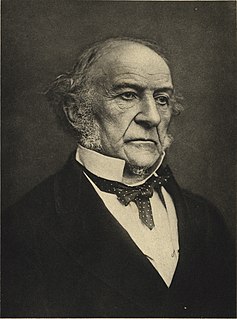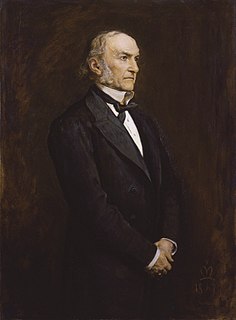Eugenio F. Biagini | |
|---|---|
| Born | 31 July 1958 |
| Nationality | Italian |
| Occupation | Professor of Modern and Contemporary History |
| Academic background | |
| Alma mater | University of Pisa Scuola Normale Superiore |
| Academic work | |
| Discipline | History |
Eugenio F. Biagini is an Italian historian,specialising in democracy and liberalism in nineteenth- and twentieth-century Britain,Ireland and Italy,and is currently Professor in Modern British and European History at the University of Cambridge. [1] He is best known for his work in free trade economics and ideology,the Italian risorgimento,Irish national identity,and the religious dimension of popular radicalism in the nineteenth century.
He completed his bachelor's degree at the University of Pisa before completing his doctorate at the Scuola Normale Superiore di Pisa. In the early 1990s he was based at Princeton University,and in 1996 he moved to Cambridge University,where he is currently Professor in Modern British and European History,and a fellow of Sidney Sussex College. Biagini is married to fellow academic Almut Hintze and has one son.
The Gladstone Club has said:"Of the many biographies of Gladstone his is the most concise but also arguably the most profound." [2] [3] His 2007 work,British Democracy and Irish Nationalism 1876–1906,was awarded the British Scholar Book of the Month for February 2009. [4]

The Liberal Party was one of the two major political parties in the United Kingdom with the opposing Conservative Party in the 19th and early 20th centuries. The party arose from an alliance of Whigs and free trade–supporting Peelites and the reformist Radicals in the 1850s. By the end of the 19th century, it had formed four governments under William Gladstone. Despite being divided over the issue of Irish Home Rule, the party returned to government in 1905 and then won a landslide victory in the following year's general election.

William Ewart Gladstone was a British statesman and Liberal politician. In a career lasting over 60 years, he served for 12 years as Prime Minister of the United Kingdom, spread over four terms beginning in 1868 and ending in 1894. He also served as Chancellor of the Exchequer four times, serving over 12 years.

Giuseppe Mazzini was an Italian politician, journalist, and activist for the unification of Italy and spearhead of the Italian revolutionary movement. His efforts helped bring about the independent and unified Italy in place of the several separate states, many dominated by foreign powers, that existed until the 19th century. An Italian nationalist in the historical radical tradition and a proponent of social-democratic republicanism, Mazzini helped define the modern European movement for popular democracy in a republican state.

In English church history, the Nonconformists were Protestant Christians who did not "conform" to the governance and usages of the established church, the Church of England. Use of the term in England was precipitated after the Restoration of the Stuart monarchy in 1660, when the Act of Uniformity 1662 renewed opposition to reforms within the established church. By the late 19th century the term specifically included other Reformed Christians, plus the Baptists, Brethren, Methodists, and Quakers. The English Dissenters such as the Puritans who violated the Act of Uniformity 1559 – typically by practising radical, sometimes separatist, dissent – were retrospectively labelled as Nonconformists.

George Macaulay Trevelyan was a British historian and academic. He was a Fellow of Trinity College, Cambridge, from 1898 to 1903. He then spent more than twenty years as a full-time author. He returned to the University of Cambridge and was Regius Professor of History from 1927 to 1943. He served as Master of Trinity College from 1940 to 1951. In retirement, he was Chancellor of Durham University.
The Radicals were a loose parliamentary political grouping in Great Britain and Ireland in the early to mid-19th century who drew on earlier ideas of radicalism and helped to transform the Whigs into the Liberal Party.
The Labour Representation League (LRL), organised in November 1869, was a forerunner of the British Labour Party. Its original purpose was to register the working class to vote, and get workers into Parliament. It had limited power, described by Eugenio Biagini as being "very weak and quite ineffective", and was never intended to become a full political party. However, it played a role in supporting the election of Lib-Lab MPs. The first secretary was Cooperative Society activist and trade unionist, Lloyd Jones.
Social liberalism also known as New liberalism in the United Kingdom, modern liberalism in the United States, Left liberalism in Germany and Progressive liberalism in Spanish-speaking countries, is a political philosophy and variety of liberalism that endorses a social market economy within an individualist economy and the expansion of civil and political rights. Under social liberalism, the common good is viewed as harmonious with the freedom of the individual.
In the United Kingdom, the word liberalism can have any of several meanings. Scholars use the term to refer to classical liberalism; the term also can mean economic liberalism, social liberalism or political liberalism; it can simply refer to the politics of the Liberal Democrat party; it can occasionally have the imported American meaning, however, the derogatory connotation is much weaker in the UK than in the US, and social liberals from both the left and right wing continue to use liberal and illiberal to describe themselves and their opponents, respectively.

Michael Davitt was an Irish republican activist for a variety of causes, especially Home Rule and land reform. Following an eviction when he was four years old, Davitt's family emigrated to England. He began his career as an organiser of the Irish Republican Brotherhood, which resisted British rule in Ireland with violence. Convicted of treason felony for arms trafficking in 1870, he served seven years in prison. Upon his release, Davitt pioneered the New Departure strategy of cooperation between the physical-force and constitutional wings of Irish nationalism on the issue of land reform. With Charles Stewart Parnell, he co-founded the Irish National Land League in 1879, in which capacity he enjoyed the peak of his influence before being jailed again in 1881.
Radicalism or classical radicalism was a historical political movement within liberalism during the late 18th and early 19th centuries and a precursor to social liberalism and modern progressivism. Its identified radicals were proponents of democratic reform in what subsequently became the parliamentary Radicals in the United Kingdom.

Gladstonian liberalism is a political doctrine named after the British Victorian Prime Minister and leader of the Liberal Party, William Ewart Gladstone. Gladstonian liberalism consisted of limited government expenditure and low taxation whilst making sure government had balanced budgets and the classical liberal stress on self-help and freedom of choice. Gladstonian liberalism also emphasised free trade, little government intervention in the economy and equality of opportunity through institutional reform. It is referred to as laissez-faire or classical liberalism in the United Kingdom and is often compared to Thatcherism.
William Edwin Adams was an English Radical and journalist.
Walter Freer was a Scottish Liberal Party worker. He was the son of a notable Chartist and has been described as a "staunch Gladstonian". He was also a power-loom tenter and temperance worker.

Italian nationalism is a movement which believes that the Italians are a nation with a single homogeneous identity, and therefrom seeks to promote the cultural unity of Italy as a country.
Jonathan Philip Parry, commonly referred to as Jon Parry, is professor of Modern British History at the University of Cambridge and Fellow of Pembroke College. He has specialised in 19th and 20th century British political and cultural history and has developed a later interest in the relationship between Britain and the Ottoman Empire.
Peace, Retrenchment and Reform was a political slogan used in early-19th-century British politics by Whigs, Radicals and Liberals.
Ethical socialism is a political philosophy that appeals to socialism on ethical and moral grounds as opposed to consumeristic, economic, and egoistic grounds. It emphasizes the need for a morally conscious economy based upon the principles of altruism, cooperation, and social justice while opposing possessive individualism.
The Moderate Party, collectively called Moderates, was an Italian pre-Unification political rally, active during the Risorgimento (1815–1861). The Moderates were never a formal party, but only a movement of liberal-minded reformist patriots, usually secular, from politics, military, literature and philosophy.